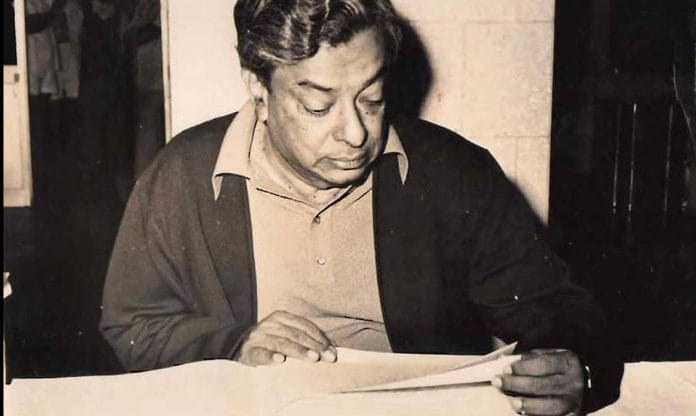There’s a reason why Verghese Kurien is known as the ‘Milkman of India’ and the father of the 1970s White Revolution. Before Amul became the beloved ‘Taste of India’, it was a grassroots dairy movement in Kaira district, Gujarat during the freedom struggle headed by Kurien. Inspired by his life, the 1976 film, Manthan, depicts how cattle-rearers were at the mercy of local dairy owners in newly independent India. Kurian joined hands with Tribhuvandas Patel, founder of the Kaira dairy farmers’ union, to turn the Kaira dairy movement into a nationwide cooperative called Anand Milk Producers Union Limited (AMPUL), later shortened to Amul. This was done by setting up a ‘national milk grid’ across more than 700 towns and cities in India.
In Kurien’s memoirs, I too had a Dream (2005), he says how farmers after forming cooperatives were able to transport pasteurised milk from Anand to milk distributor Bombay Milk Scheme via railways with a direct link to consumers. They could procure, process and market their own products, all while obtaining a majority cut from the profits.
Kurien held various offices over his career, including chairman of the government-run National Dairy Development Board (1965-1998), general manager of the Kaira District Cooperative Milk Producers Union Ltd (1950-1973), and managing director of the Gujarat Cooperative Milk Marketing Federation (1973 -1983).
Kurien also won awards like the Ramon Magsaysay Award, Wateler Peace Prize, and the World Food Prize. The Government of India honoured him with the Padma Shri in 1965.
However, according to reports, he never drank milk.
Early life
Kurien was born into a Syrian Christian family in Kerala’s Calicut (Kozhikode) in November 1921. His father was a civil surgeon in British Cochin and his mother was known to have been an exceptional piano player. In 1940, Kurien graduated from Loyola College, Chennai with a degree in Science, at just 14 years of age. He also secured an engineering degree from Guindy College of Engineering, Chennai. At college, he had hopes of joining the Indian military as an engineer but things took a different turn.
Nine years later, Kurien was posted to Anand in Gujarat as a young dairy engineer, which he initially disliked. With a government scholarship, he eventually pursued higher studies in the United States. In his memoirs, he describes himself as “cocky, foreign-educated young Indian” upon returning to India.
Also read: Mumbai horse racing & Amul girl as jockey – how an ‘utterly butterly’ idea kicked off
From dairy engineer to dairy pioneer
As general manager of the Kaira milk producers’ union, Kurien used his managerial skills to help the union grow to a national scale while continually serving the interests of dairy farmers and rural people. Kurien’s engineering and dairy technologist background, says this Financial Express report, brought a sense of professionalism to the dairy movement. He introduced “a robust supply chain, creating modern technology and production systems, and establishing a marketing and organisational ecosystem.” By 1946, the union was in full form, bringing economic independence to farmers and overtaking brands like Polson that once monopolised the dairy market.
During his time at the National Dairy Development Board, Kurian befriended fellow NDDB member and head of the Rashtriya Swayamsevak Sangh M.S. Golwalkar. Golwalkar reportedly wanted Kurien to support him on banning cow slaughter but the latter declined, knowing it didn’t align with the realities of dairy economics.
In view of the Modi government’s plans to provide dairy farmers a subsidy on ‘sex-selection’ that will ensure birth of only female cattle, Kurien would be appreciative, says Mumbai-based dairy consultant, Dr J.V. Parekh. “If Kurien ji were alive, he would support this scheme as it will improve the quality of milk and dairy products in India. As it is dairy production has doubled in the last ten years, because milk, unlike other cash crops, is not as affected by things like monsoon delays.”
Milking the vision
India’s milk production jumped from 20 million tonnes a year in the 1960s to 122 million tonnes in 2011 under Kurien’s charge, writes the Telegraph. He was also the first to come up with the idea to manufacture milk powder from buffalo milk, while the rest of the world was only using cow’s milk. Kurien was able to think beyond milk production to expand the dairy industry as evident in his push to manufacture edible oils.
Kurien, who was suffering from a kidney disease, passed away on 9 September 2012 in Nadiad, a town near Anand, which had been his home for 63 years. At the time, President Pranab Mukherjee and Prime Minister Manmohan Singh publicly acknowledged Kurien’s contributions to rural upliftment and the agrarian economy.
Every year, Amul makes quirky advertisements in tribute of Kurien like this one.
#Amul Topical: Our salute to Dr Kurien on his 6th death anniversary today? a dream that made India the largest milk producing country in the world, GCMMF amongst the top 10 dairy companies of the world and Amul amongst the top 3 strongest dairy brands in the world.. pic.twitter.com/TJowpsql0Y
— Amul.coop (@Amul_Coop) September 9, 2018
Also read: In Manthan, Girish Karnad showed why change matters through the Amul story






